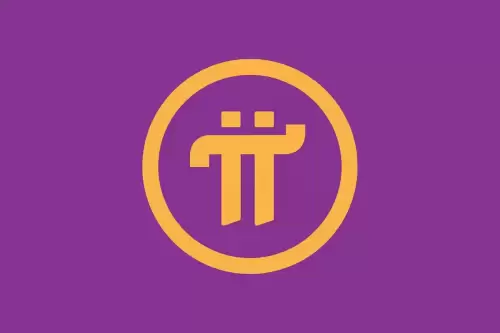 |
|
 |
|
 |
|
 |
|
 |
|
 |
|
 |
|
 |
|
 |
|
 |
|
 |
|
 |
|
 |
|
 |
|
 |
|
Nachrichtenartikel zu Kryptowährungen
Zimbabwe Launches Blockchain Registry to Regain Carbon Market Trust
May 13, 2025 at 07:00 am

Zimbabwe has unveiled a new blockchain system to integrate and bring transparency to its carbon credit market.
According to Bloomberg, the Southeast African nation is aiming to create a trusted nationwide platform where approved developers can conduct safe and transparent carbon credit exchanges.
This action follows the uncertainties brought on by Zimbabwe’s quick policy shifts regarding carbon credits in 2023. At that time, the government canceled numerous active initiatives, insisted on a 50% share of revenue, and requested that all developers re-register.
Therefore, international developers, with the well-known Kariba REDD+ Project among them, experienced considerable challenges completing their work.
As a result, Zimbabwe faced diminished trust from large numbers of investors and project partners. The unanticipated changes cast doubt on the country’s reliability and increased worries about equal and dependable business practices. For this reason, the government has begun initiatives to restore its image and encourage investment by focusing on strengthening the transparent management of carbon credit processes.
In order to bolster these goals, Zimbabwe created the Carbon Market Management Authority (ZCMA) last week. The new entity will manage the approval of carbon offset projects and make certain they comply with all regulations. Before carrying out any carbon credit projects, developers must register their compliance applications through zicma.org.zw.
Last year, RippleNami, a California-based data company, reported that Zimbabwe is a key player in the carbon market in Africa. Being the third-largest contributor on the continent, Zimbabwe supplies 12.5% of Africa’s total carbon credits, according to the company’s analysis. This finding suggests that Zimbabwe could take a leadership position in environmental and carbon offset efforts, provided it keeps investor confidence high and maximizes the new carbon registry’s potential.
However, with the government’s abrupt policy changes in 2023, several foreign developers encountered difficulties completing their projects. Among them is the Kariba REDD+ Project, a large-scale initiative that has been actively pursued by international partners since 2010.
Despite the new administration's good intentions, quickly switching to a 50% revenue share and demanding re-registration from all developers in the middle of projects had a significant impact. As a result, large-scale investors and project partners, who are crucial for launching new climate projects, have become hesitant to continue their involvement.
This step is part of broader efforts by African countries to use blockchain technology for climate finance and carbon trading.
Haftungsausschluss:info@kdj.com
Die bereitgestellten Informationen stellen keine Handelsberatung dar. kdj.com übernimmt keine Verantwortung für Investitionen, die auf der Grundlage der in diesem Artikel bereitgestellten Informationen getätigt werden. Kryptowährungen sind sehr volatil und es wird dringend empfohlen, nach gründlicher Recherche mit Vorsicht zu investieren!
Wenn Sie glauben, dass der auf dieser Website verwendete Inhalt Ihr Urheberrecht verletzt, kontaktieren Sie uns bitte umgehend (info@kdj.com) und wir werden ihn umgehend löschen.
-

- Cardano Preis Raketen: Ada springt an Widerstand vorbei, $ 2 Ziel in Sichtweite?
- Jul 28, 2025 at 12:00 am
- Cardano (ADA) bricht den Schlüsselwiderstand und treibt bullische Vorhersagen an! Wird ADA 1, 2 US -Dollar oder sogar höher getroffen? Tauchen Sie in die Analyse und die potenzielle Altcoin -Saison ein.
-

-

-

-

-

- Coinbase Wallet: Sicherheit, Bewertungen und wie lautet der Hype?
- Jul 27, 2025 at 11:32 pm
- Ein tiefes Tauchgang in Coinbase Wallet: Erforschen der Sicherheitsfunktionen, Benutzerbewertungen und der neuesten Integrationen, um festzustellen, ob es sich um die richtige Krypto -Brieftasche für Sie handelt.
-

- Krypto -ETFs und Altcoins: Navigieren Sie durch den wilden Westen mit Meme -Münzen und tokenisierten Vermögenswerten
- Jul 27, 2025 at 10:04 pm
- Erforschen Sie die neuesten Trends in Crypto: Meme Coin-Dominanz, BlackRocks potenziellem XRP-ETF und Ondos realer Asset-Tokenisierung. Ist das die Zukunft von Krypto?
-

-





























































